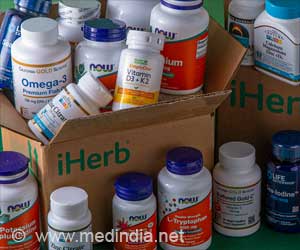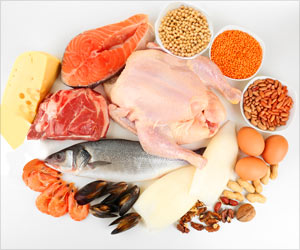Altering the fatty acid ratio found in the typical Western diet to include more omega-3 fatty acids and decrease the amount of omega-6 fatty acids may reduce prostate cancer tumor growth rates
UCLA researchers found that altering the fatty acid ratio found in the typical Western diet to include more omega-3 fatty acids and decrease the amount of omega-6 fatty acids may reduce prostate cancer tumor growth rates and PSA levels.
Published in the Aug. 1 issue of the journal Clinical Cancer Research, this initial animal-model study is one of the first to show the impact of diet on lowering an inflammatory response known to promote prostate cancer tumor progression and could lead to new treatment approaches.The omega-6 fatty acids contained in corn, safflower oils and red meats are the predominant polyunsaturated fatty acids in the Western diet. The healthier marine omega-3 fatty acids are found in cold-water fish like salmon, tuna and sardines.
“Corn oil is the backbone of the American diet. We consume up to 20 times more omega-6 fatty acids in our diet compared to omega-3 acids,” said principal investigator Dr. William Aronson, a professor in the department of urology at the David Geffen School of Medicine at UCLA and a researcher with UCLA’s Jonsson Cancer Center. “This study strongly suggests that eating a healthier ratio of these two types of fatty acids may make a difference in reducing prostate cancer growth, but studies need to be conducted in humans before any clinical recommendations can be made.”
Scientists used a special mouse model for hormone-sensitive prostate cancer that closely mirrors the disease in humans. Researchers fed one group of mice a diet comprised of 20 percent fat with a healthy one-to-one ratio of omega-6 to omega-3 fatty acids. A second group of mice were fed the same diet but with the fat derived from mostly omega-6 fatty acids.
The study showed that tumor cell growth rates decreased by 22 percent and PSA levels were 77 percent lower in the group receiving a healthier balance of fatty acids compared with the group that received predominantly omega-6 fatty acids.
The most likely mechanism for the tumor reductions, according to researchers, was due to an increase of the prostate tumor omega-3 fatty acids DHA and EPA and a lowering of theomega-6 acid known as arachidonic acid. These three fatty acids compete to be converted by cyclooxgenase enzymes (COX-1 and COX-2) into prostaglandins, which can become either pro-inflammatory and increase tumor growth, or anti-inflammatory and reduce growth.
Advertisement
“This is one of the first studies showing changes in diet can impact the inflammatory response that may play a role in prostate cancer tumor growth,” Aronson said. “We may be able to use EPA and DHA supplements while also reducing omega-6 fatty acids in the diet as a cancer prevention tool or possibly to reduce progression in men with prostate cancer.”
Advertisement
In addition, Aronson said that further study might show that COX-2 inhibitors or non-steroidal anti-inflammatories (NSAIDS) combined with omega-3 supplements also may lower the inflammatory response in prostate cancer development.
Source: Newswise



![Prostate Specific Antigen [PSA] Prostate Specific Antigen [PSA]](https://www.medindia.net/images/common/patientinfo/120_100/prostate-specific-antigen.jpg)







